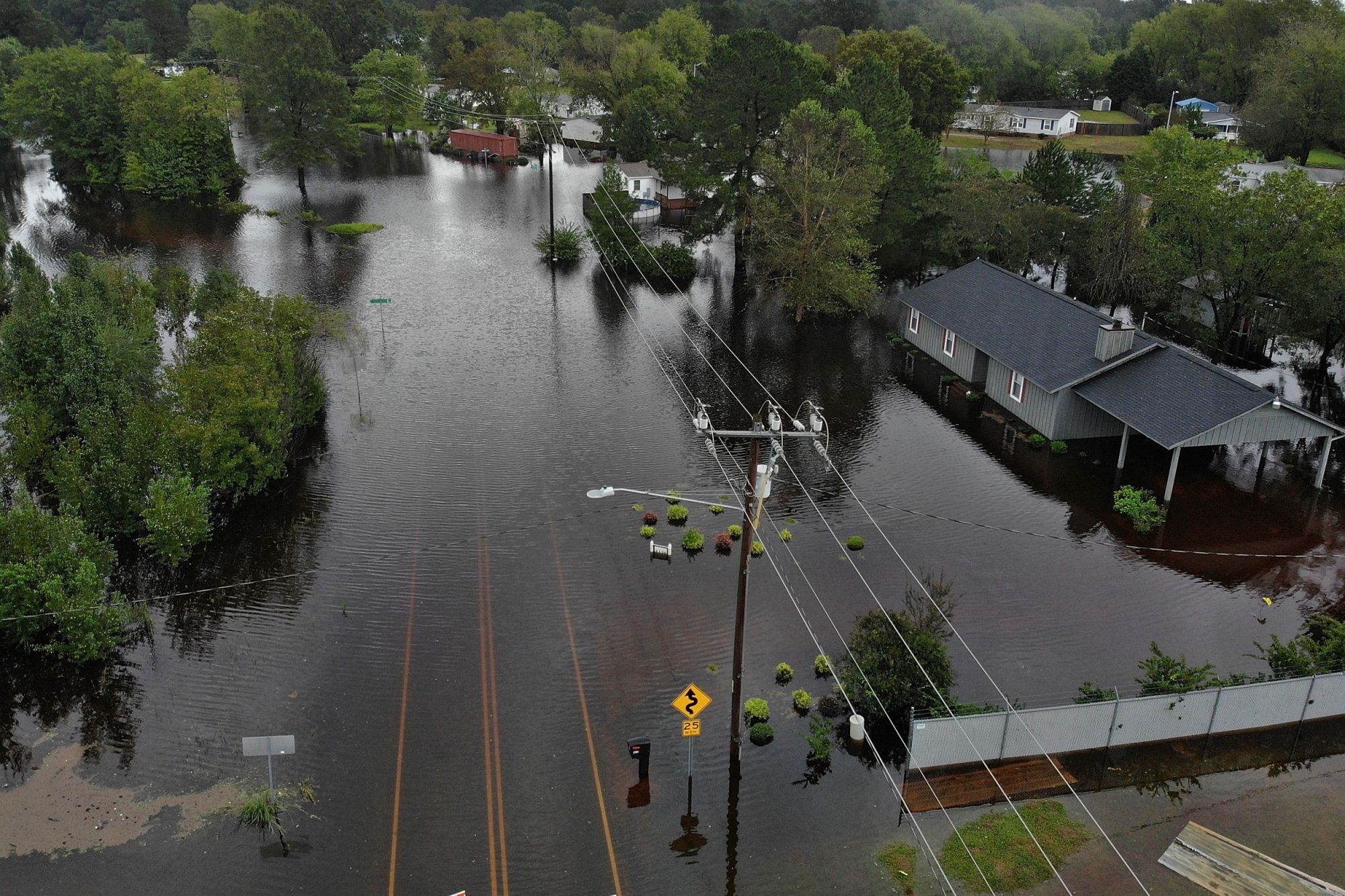What I Learned From Harvey, Can Help You With Florence Here are a few tips from a Houston-based business owner who survived Hurricane Harvey for BIZ Experiencess impacted by Florence.
By David Sewell Edited by Dan Bova
Opinions expressed by BIZ Experiences contributors are their own.

As the Carolinas evaluate the damage caused by Hurricane Florence and begin the recovery process, I can't help but think back to where I was a year ago. Last August, Hurricane Harvey roared into my hometown Houston community. The wall of rain blanketing our city eliminated visibility, and triple-digit winds ripped off rooftops and snapped trees like they were twigs.
Related: How Our Growing Tech Company Stayed Open During Hurricane María
Even in the midst of a natural disaster, BIZ Experiencess need to find ways to keep their businesses running and their customers well served. As devastating as the storm was, I knew, as a Farmers Insurance agent and owner of a small business, that I had a responsibility to my customers. I knew this historic storm would usher in some of the greatest moments of need in my customers' lives.
While my team and I dealt with Harvey's effects, we learned lessons that any BIZ Experiences could find helpful during any type of natural disaster. The three strategies below helped keep us going, and my team hopes leaders impacted by Florence, or any other catastrophe, can consider them during their time of need and recovery.
1. Schedule daily check-ins.
It's critical to plan full-fledged check-ins with your team every day, at least once a day. As we fought through Harvey's challenges, my team connected in the morning, midday and in the late afternoon on calls. We viewed these check-ins as opportunities to help team members get the resources they needed to keep the business running, share news and developments, and listen to our colleagues and customers.
Every disaster presents different obstacles, so sharing learnings specific to our team's objectives in real-time helped everyone digest, recover and support our customers more quickly. It's also important for leaders to remember that your team members are dealing with the natural disaster as individuals, not just employees; we knew it was vital to make time to let them be heard.
Regular check-in participation helped my team be smarter during Harvey and made us better prepared for the next one, whenever it comes our way.
Related: How This BIZ Experiences Turned Hurricane Harvey into an Incredible Breakthrough
2. Adopt a micro solutions mantra.
When everything is falling apart during and just after a natural disaster, the road to recovery can look like it's running straight up Mount Everest. It can be difficult to know where, how or when to start making things better.
Though challenges on the scale of a natural disaster can't be underestimated, teams can avoid feeling overwhelmed by breaking down problems to their smallest steps. In those check-ins I described, taking the time to explicitly discuss all components -- no matter how small -- of a large, pressing project encouraged clarity, accountability and confidence among the team. It minimized the risk of responsibilities getting lost to miscommunications or assumptions. And as team members shared firsthand experiences and customer feedback in relation to our efforts, we even discovered ways to optimize our work in real time.
Committing to creating micro solutions instead of mega ones can make it easier to focus on what your team can accomplish now. In turn, that behavior can help teams buy in and believe their goals are achievable -- even when their to-do lists seem never-ending.
Related: 3 Steps Effective Leaders Take When Dealing With Crisis
3. Tap technology to its fullest.
Technology made a big difference in our response to Hurricane Harvey's destruction. In previous storm response efforts, we weren't as reliant on technology. For instance, when Hurricane Ike hit in 2008, I had to walk or drive (and personally hand-deliver) submitted claims to a mobile operations center.
In a time of crisis, plan to communicate with customers and team members through multiple channels, as some of your most reliable communication networks and methods may be temporarily down. After Harvey, my team received customers' claims via every form of technological communication, including phone calls, texts and emails. And my team stayed in constant contact through phone, video conferencing, emails and social media communications.
Most BIZ Experiencess rarely consider natural disasters until they're literally on their doorstep and by then, it's too late to devise contingency plans. But, these three strategies helped enable me and my team to assist our clients during and after Hurricane Harvey. We hope they'll be equally helpful to those affected by Florence -- or any other disaster -- so they can meet their current challenges and find practical solutions that will strengthen them as BIZ Experiencess.












